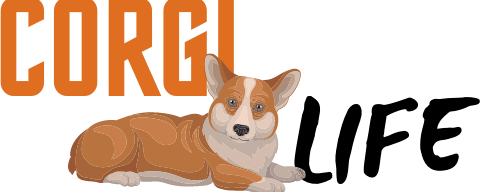Pet dogs with a high prey drive are potentially hard to manage, especially if they have not been trained correctly. So, your query about the prey drive of corgis is very rational.
Do corgis have a high prey drive?
Corgis have a medium to high prey drive. This is unsurprising since they were bred to herd cattle and kill vermin.
Corgis typically chase and herd smaller animals instinctively. However, you may find that the intensity of their prey drive may differ from one individual to another.
In this article, we talk more about the prey drive of corgis. We also go over some other interesting facts you may be wondering about.
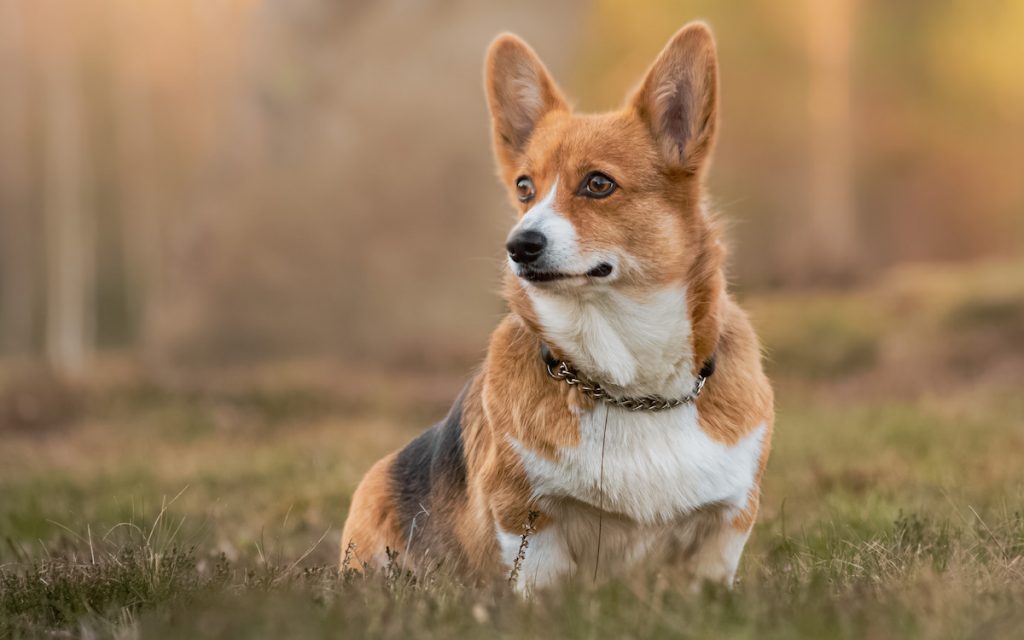
Do Corgis Have a High Prey Drive?
Your individual experience with individual corgis may differ. But generally, corgis have a medium to high prey drive. The fact that they were bred as herders and vermin controllers puts their prey drive in perspective.
Responding to their prey drive, corgis go after small-sized animals like birds, cats, rabbits, squirrels, lizards, and even dogs. Corgis may also chase after dragonflies, crickets, bees, and similar insects.
In some cases, corgis may not even kill or maim the animals they go after. However, if they do kill the prey, chances are it is an insect. Of course, this does not mean they do not maim or kill larger animals.
In rare cases, some corgis remain unbothered even when small animals are around them.
14 Interesting Facts to Know About Corgis
Corgis Like to Cuddle Their Owners
Corgis are attention seekers. They are affectionate, loving, and enjoy being cuddled. Their relatively small stature makes them easy to hold and carry around. However, not all corgis have the same personality, and some may not enjoy cuddling.
When you bring home your first corgi puppy, you will notice all it wants is to run around and cuddle. As your corgi gets older, the need for cuddles will diminish. But not to worry, they will keep seeking your attention.
Besides cuddling with you, corgis also cuddle themselves in cold weather for warmth.
Corgis Are Affectionate Dogs

If you are looking for an affectionate pet, you cannot go wrong with a corgi. Corgis will remain devoted to their owners as long as they are not mistreated.
Unlike other dog breeds, corgis will always show their owners affection. Some corgis even become so attached to their owners that they follow them everywhere.
Some dog breeds tend to restrain themselves from showing affection to their owners. But if you plan on getting a corgi, then get ready to be showered with a lot of love.
Corgis Bite a Lot
Although corgis are playful and fun-loving dogs, they will often nip and bite. This behavior is a result of their herding instincts and background.
When herding livestock, corgis will bite and nip at the heels of cattle to prevent them from straying. There is also a lot of barking and biting when they chase predators away from livestock. If you notice your corgi biting or nipping your ankles, it is simply mimicking its herding behavior.
Even when they are not herding livestock, corgis tend to bite a lot. Sometimes this could be a sign of aggressive behavior.
Corgis Are Not Aggressive Pets
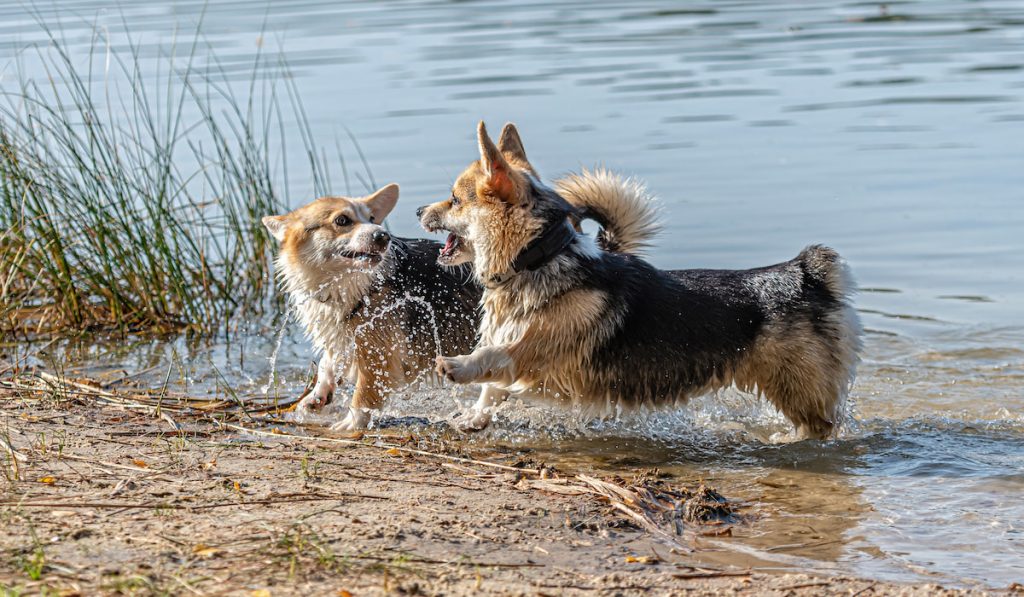
Corgis are generally friendly, outgoing, and playful. Although they are not usually aggressive, they can become aggressive. Corgis can become aggressive when threatened, and this response is indicative of their protective nature.
If you bring up your corgi in a good environment, it is unlikely to become aggressive. And if you notice your corgi is becoming overly aggressive, you can rectify it with the proper training.
Corgis Are Proficient Swimmers
Corgis are excellent swimmers; they enjoy going into the water when the opportunity presents itself. Their powerful thighs propel them in the water and ensure they stay afloat.
Most corgis are not scared of water, and they will relish any opportunity they get to go swimming. You can even take your corgi swimming in large water bodies like lakes and oceans. However, not all corgis love to swim, especially corgis that are unfit, injured, or timid.
Corgis Are Quite Smart
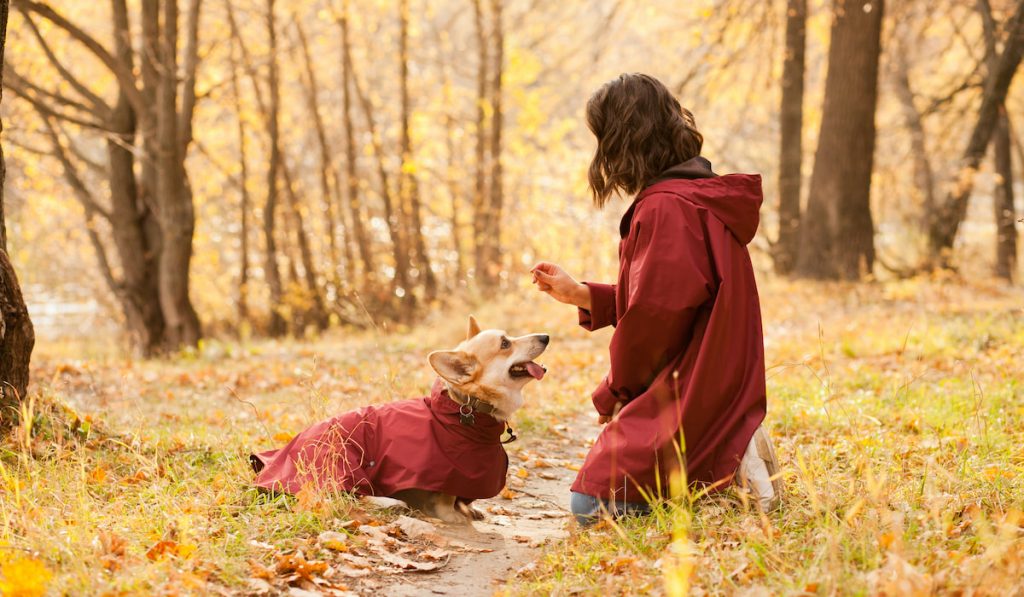
Corgis are ranked the 11th smartest dog breed. They have excellent troubleshooting skills, which comes as no surprise since they require it to herd livestock.
However, being smart may have its downside. Since corgis are kept as pets, they tend to get bored and may even act out. You can prevent this by giving them something to do to keep them mentally stimulated. For instance, you can try getting a dog puzzle to keep your corgi occupied. It will ensure your corgi does not act out.
Corgis Do Not Mind Cold Weather
Thanks to their double coats, corgis can enjoy cold weather. They can also enjoy high temperatures ranging from 78-87 degrees Fahrenheit. However, if the temperature drops below 50 degrees Fahrenheit, your corgi will become uncomfortable.
Most corgis enjoy playing outdoors when it is cold and even when it is snowing. However, you need to remain cautious and ensure they do not get too cold. While corgis have double coats, they can still suffer from low temperatures.
Corgis Were Once Used to Herd Livestock
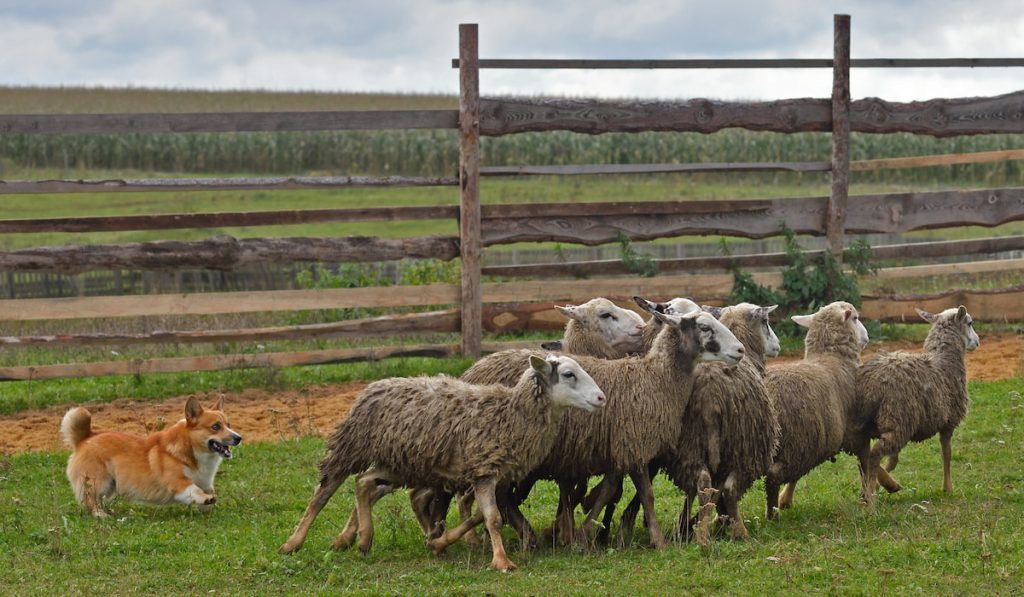
Despite their size, corgis are excellent herding dogs. To be precise, they are the smallest dog breeds in the herding group.
Corgis were bred to herd cattle and keep them moving by constantly nipping at their hooves. Thanks to their small stature, they can work and avoid getting kicked by any dissatisfied cattle. Their agility also made it easy for them to avoid getting trampled on while pointing the livestock in the right direction.
Corgis Shed All Year Long
Corgis generally have two different coats: an undercoat and an outer coat (the primary fur layer).
The primary fur layer is longer than the undercoat, and it provides protection against wind and rain. The undercoat, on the other hand, helps with insulation.
Several factors influence how much your corgi will shed in a year including exposure to daylight, hormonal changes, diet, and temperature. To manage your corgi’s shedding, you can monitor its diet, have a grooming schedule, go for regular checkups, check for phobias, and trim its coats.
Corgis Love to Socialize
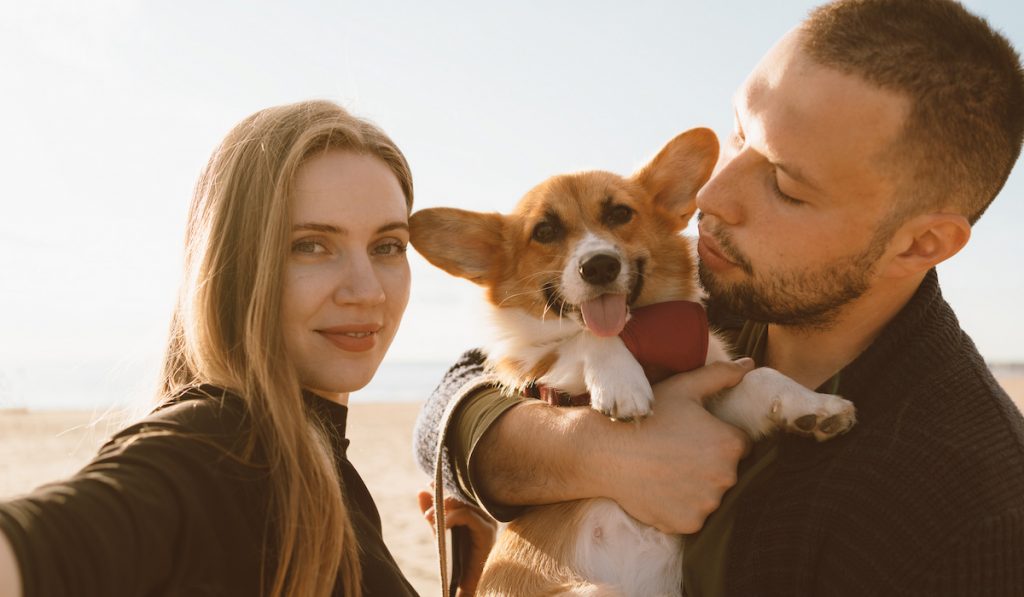
Corgis love attention, and they tend to get along well with other dog breeds. However, their ability to socialize depends on their upbringing.
You can teach your corgi to live in peace with other dogs. However, you must start early. Corgis have a socialization period, and if they are not properly socialized during this period, they become aggressive.
Corgis Are Very Good Watchdogs
Despite being small-statured dogs, corgis have a loud bark. They use their loud vocalizations to keep livestock moving while herding. They are also loyal, alert, and excellent watchdogs.
Corgis will use their loud barks to inform their owners about the current situation. Compared to other breeds that just howl or whine, corgis use their barks to get their point across. Although corgis may not be best suited to physically prevent intruders from breaking into your home, they will forewarn the entire house.
Corgis Are Surprisingly Fast
Do not be fooled by their size, corgis are surprisingly fast. They can run twice as fast as cattle or sheep to keep them from straying.
There are records showing corgis running as fast as 25 miles per hour – a lot faster than their stature suggests. Corgis are that fast because they use more of their upper body strength, unlike other dog breeds.
There are several corgi running events held each year. There is also a corgi racing society that keeps tabs on them.
Corgis Have Abundant Energy
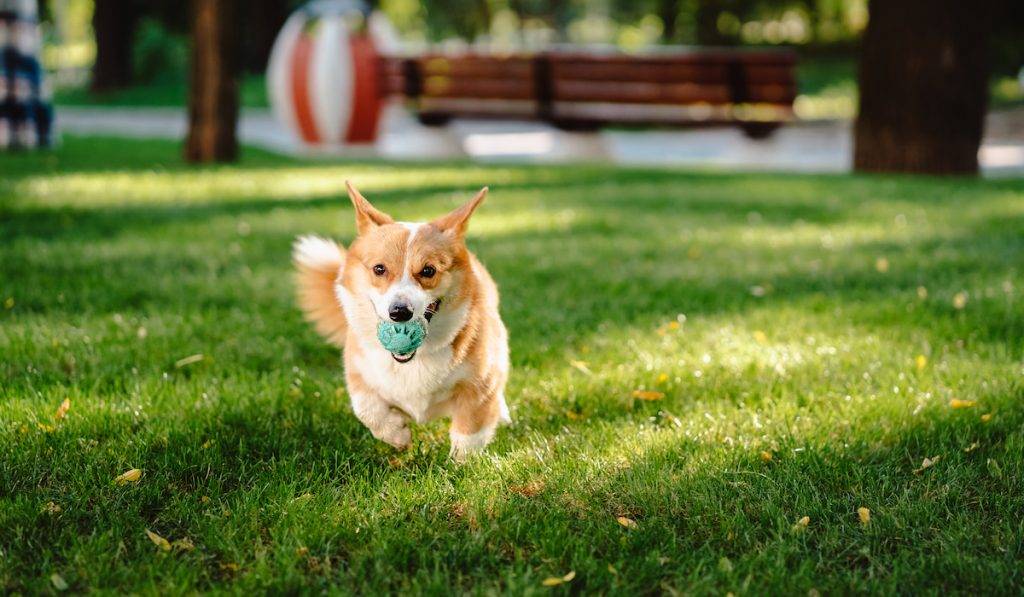
Corgis are high-energy dogs. Since they were bred to herd cattle, they do not tire easily.
Corgis can remain active for a whole day. You can take them out without worrying about them getting exhausted. However, they are not hyperactive like some other dog breeds that require long walks.
When a corgi is idle, it will become depressed, disobedient, and destructive. To avoid this, you must manage its energy. Ensure your corgi gets regular exercise. Walking, swimming, playing fetch, and hiking are some activities that can help with this.
The exercise requirement among corgi breeds differs. However, they generally require around 20 minutes to one hour of exercise daily.
Corgis Require Strict Diets
Corgis love food, and if you do not watch what they eat, they can become overweight.
Monitoring how much your corgis eat is essential to prevent health problems. An overweight corgi is susceptible to joint, back, and hip problems.
Resources:
- http://mycorgi.com/forum/topics/prey-drive
- https://www.thefactsite.com/corgi-facts
- https://answerstoall.com/users-questions/do-corgis-have-a-high-prey-drive
- https://dogtime.com/dog-breeds/characteristics/predatory-tendencies
- https://bestlifeonline.com/corgi
- https://mymodernmet.com/corgi-facts
- https://dogsandclogs.com/do-corgis-like-to-cuddle
- https://peteducate.com/do-corgis-like-to-cuddle
- https://www.familylifeshare.com/can-corgis-swim
- https://corgicare.com/why-do-corgis-bite
- https://corgicare.com/when-do-corgis-get-their-full-coat
- https://www.playbarkrun.com/corgi-shedding-tips-from-an-expert-groomer
- https://dogell.com/dog-breed/pembroke-welsh-corgi
